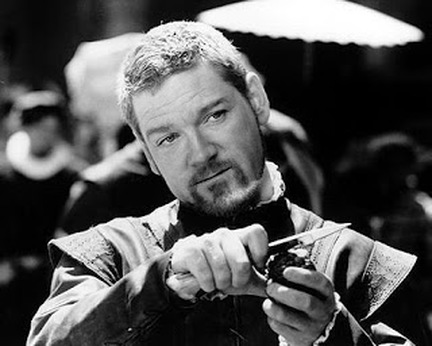So let's back up a bit. We all acknowledge that a story needs an antagonist - of course it does. It needs a force that opposes the protagonist, that causes conflict and misery for the main character. Stories without antagonists are not stories. Period.
But there is a difference between villainy and antagonism. At some point (hopefully), some English teacher told you that there are three kinds of conflict - person-versus-person, person-versus-environment, and person-versus-self. This is broadly true, but stories with any depth have to incorporate the last one. I took a course in university called "Traditions of Canadian Literature." Before I even took it, I made the joke that a "tradition of Canadian Literature" was snow. The thing is, though, snow is actually an excellent antagonistic force, not because of its villainy, but because of what it does to the character's mind. In the words of Jack Sparrow, "The problem is not the problem. The problem is your attitude about the problem." We are our own worst enemies, by a long way. Who is Othello's worst enemy, in Shakespeare's play? His own jealousy. Don't get me wrong, Iago is terrifying, but he's only successful because of Othello's existing state of mind. What about Batman's worst enemy? The Joker? Hardly. He's a great villain, but he doesn't hold a candle (or, in the Joker's case, a stick of dynamite) to the demons in Batman's own mind, and this is true regardless of who is writing him. Is Loki the Avengers' greatest foe? If he is, it's only because he goes to work on the one thing that can tear them apart more quickly than he can - themselves. I don't know very many villains (with some notable exceptions in the form of certain world leaders). But I am familiar, as we all are, with a fair few antagonistic forces. Jealousy, prejudice, sexism, racism, pride, trauma... These are the forces that interested me in writing The Steel Lady, because they feel real. And okay, I acknowledge that it sounds better to say "my novel has a great villain" than it does to say that "my novel has great antagonistic forces." But be honest - which one do you deal with everyday? The prejudices and barriers of your mind, or an evil overlord villain with a diabolical plan? That we are so often the authors of our own destruction is terrifying in and of itself. Okay, that's a depressing way to end. Instead, let's follow the example of C. S. Lewis, when he said "Since it is so likely children will meet cruel enemies, let them at least have heard of brave knights and heroic courage." Indeed. If you haven't done so recently, make a giant bowl of popcorn and go watch Disney's 1959 classic, Sleeping Beauty. It features a fabulous villain - a proper villain, not an antagonistic force - but it also, and more importantly, features the heroics of both Prince Phillip, a prince who couldn't be more Disney if he tried, and the Three Good Fairies, female characters who are bizarrely strong for 1959. Just enjoy it. Heroes and strong female characters are a topic for another day.
1 Comment
Sydney
10/23/2016 09:35:08 pm
I just can't seem to agree with you. Characters that are their own enemy just annoy me too much. I get frustrated by their minds being the only thing that prevents them from finding happiness or true love or whatever. I read to enjoy myself, not to get frustrated.
Reply
Leave a Reply. |
Author
Jane Perrella. Teacher, writer. Expert knitter. Enthusiast of medieval swordplay, tea, Shakespeare, and Batman. Archives
June 2019
Categories |

 RSS Feed
RSS Feed
